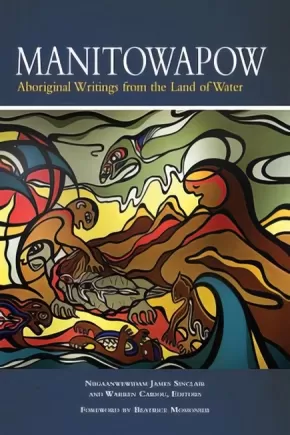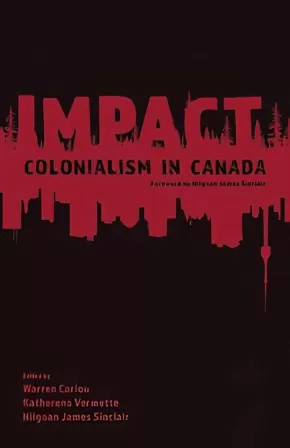Warren Cariou
Warren Cariou is a writer, scholar, and artist of Métis and European heritage based at the University of Manitoba. He has edited numerous books and anthologies of Indigenous Literature, and he is the general editor of the First Voices, First Text series at the University of Manitoba Press. He has published works of fiction, criticism, and memoir about Indigenous cultures and environmental issues, and his photography examines oil extraction activities in Treaty 8 territory.
Books (2)
Synopsis:
The groundbreaking Indigenous style guide every writer needs.
The first published guide to common questions and issues of Indigenous style and process for those who work in words and other media is back in an updated new edition. This trusted resource offers crucial guidance to anyone who works in words or other media on how to work accurately, collaboratively, and ethically on projects involving Indigenous Peoples.
Editor Warren Cariou (Métis) and contributing editors Jordan Abel (Nisga’a), Lorena Fontaine (Cree-Anishinaabe), and Deanna Reder (Cree-Métis) continue the conversation started by the late Gregory Younging in his foundational first edition. This second conversation reflects changes in the publishing industry, Indigenous-led best practices, and society at large, including new chapters on author-editor relationships, identity and community affiliation, Two-Spirit and Indigiqueer identities, sensitivity reading, emerging issues in the digital world, and more.
This guide features:
- Twenty-two succinct style principles.
- Advice on culturally appropriate publishing practices, including how to collaborate with Indigenous Peoples, when and how to seek the advice of Elders, and how to respect Indigenous Oral Traditions and Traditional Knowledge.
- Terminology to use and to avoid.
- Advice on specific editing issues, such as biased language, capitalization, citation, accurately representing Indigenous languages, and quoting from historical sources and archives.
- Examples of projects that illustrate best practices.
Additional Information
208 pages | 5.50" x 7.50" | Paperback
Synopsis:
This anthology of Aboriginal writings from Manitoba takes readers back through the millennia and forward to the present day, painting a dynamic picture of a territory interconnected through words, ideas, and experiences. A rich collection of stories, poetry, nonfiction, and speeches, it features:
- Historical writings, from important figures.
- Vibrant literary writing by eminent Aboriginal writers.
- Nonfiction and political writing from contemporary Aboriginal leaders.
- Local storytellers and keepers of knowledge from far-reaching Manitoba communities.
- New, vibrant voices that express the modern Aboriginal experiences.
- Anishinaabe, Cree, Dene, Inuit, Métis, and Sioux writers from Manitoba.
Educator & Series Information
Created in the spirit of the Anishinaabe concept debwe (to speak the truth), The Debwe Series is a collection of exceptional Aboriginal writing from across Canada. Manitowapow, a one-of-a-kind anthology, is the first book in The Debwe Series. Manitowapow is the traditional name that became Manitoba, a word that describes the sounds of beauty and power that created the province.
Recommended for grades 11 and 12, university students, and adults.
Additional Information
416 pages | 6.00" x 9.00"
Teen Books (1)
Synopsis:
A collection of fiction, poetry, essays and creative non-fiction, this anthology features works by over 20 Indigenous Canadian writers. The book focuses on the effects of colonialism in Canada from both historical and contemporary perspectives.
"These stories are rich in geographies Indigenous peoples journey through today; on streets, in cities, and into the future. These stories will make you think, cry, and heal." —Niigaanwewidam James Sinclair, Editor
Reviews
"Impact: Colonialism in Canada presents writings that are often challenging, thought-provoking, and at times, gut-wrenching. The collection is a testament to strength and resiliency and the potential for healing, both within the Indigenous and non-Indigenous communities. But, it is not easy reading; it demands considerable insight, open-mindedness, and an understanding of an historical concept (i.e. colonialism), all of which point to the book’s being read and/or studied by students in the upper grades of high school. It’s certainly a work that would be a fine reference in a high school library collection, and teachers would find it to be an excellent supplemental text for the study of Aboriginal writers, as well as Canadian history, particularly as a reflection of the impact of colonialism upon Canada’s Indigenous peoples. Highly Recommended." - Joanne Peters, CM Magazine
Educator Information
Recommended for ages 17+
Additional Information
198 pages | 5.50" x 8.50"









